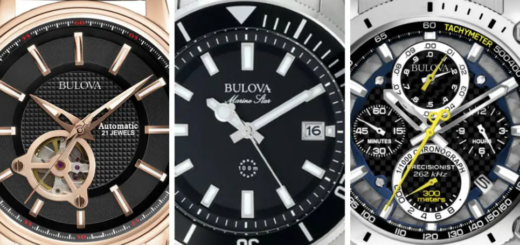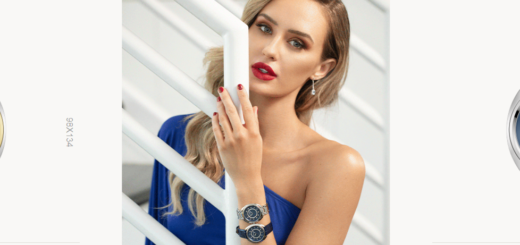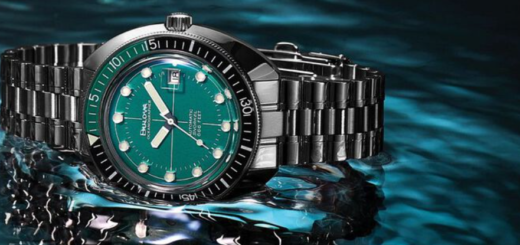Are Bulova Watches A Good Investment?
In the world of horology, the value of a watch extends beyond its ability to tell time. Watches can be investments, treasures that hold their value or even appreciate over time. Among the myriad of brands, Bulova emerges as an intriguing option.
Although Bulova boasts intricate designs, it is not typically classified as a luxury brand in the watch industry. With prices beginning around $100, Bulova’s offerings are often perceived as less competitive compared to the higher-end models of other brands. However, for the majority of its collections, Bulova maintains a favorable balance between quality and price, offering substantial value to its customers.
So, are Bulova watches a good investment? This article delves into various facets of Bulova watches to assess their investment potential.
Table of Contents
Are Bulova Watches a Good Investment?
The investment value of watches hinges on several factors, including their market demand, historical significance, and the overall longevity of their timepieces. Unlike some high-end luxury brands known for their investment potential, Bulova occupies a unique position. While some of its vintage models, particularly those with historical significance or limited production, have shown appreciation over time, Bulova watches are generally considered more for their craftsmanship and aesthetic value than as financial investments.
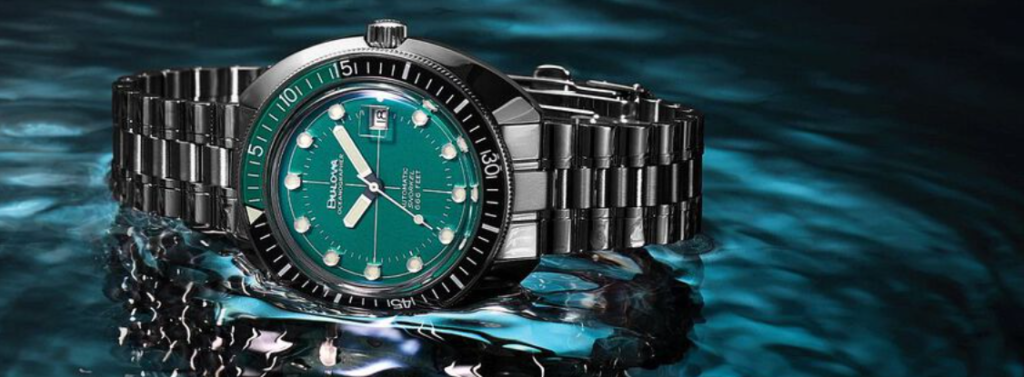
Bulova watches are considered a smart investment due to their durability, often lasting a minimum of ten years. However, in the collector’s market, they face an abundance of supply with relatively low demand, which means their value is unlikely to appreciate significantly. As part of its production strategy, similar to its parent company Citizen, Bulova continues to manufacture watches on a large scale. This mass production approach tends to diminish their rarity and, consequently, their appeal as collectible items.
Does Bulova Qualify As A Luxury Watch?
Defining a brand as “luxury” involves a variety of factors, including the quality of materials used, production methods, the presence of in-house movements, and pricing strategies. In this context, not all of Bulova’s collections fulfill these criteria, which suggests that it may not entirely fit within the conventional definition of a luxury brand.
Understanding what constitutes a luxury brand can be complex. For a deeper insight into the characteristics that define a “luxury” watch brand, you might find my article on the topic informative.
Since its inception in New York in 1875, Bulova has made a notable mark in the watchmaking industry. Throughout its history, Bulova has been responsible for creating a range of reliable timepieces.
To gain a more comprehensive understanding, let’s delve deeper into how Bulova’s watches perform against the aforementioned luxury criteria.
Premium Materials
Bulova watches are not uniformly made from the same components. Depending on the specific collection, they are manufactured in different locations using a variety of materials. It is also crucial to note that Bulova timepieces are produced on a large scale, which is a significant aspect of their manufacturing process.
Most luxury watch brands typically utilize materials like platinum, gold, silver, and diamonds. However, in a majority of Bulova’s collections, these premium materials are replaced with stainless steel. This substitution of less expensive materials is one of the key reasons Bulova does not entirely align with other luxury brands in terms of material usage.
Movements
Bulova is renowned for its innovative movements, including the famed Accutron and Precisionist. These movements offer exceptional accuracy and are a testament to Bulova’s commitment to technological advancement in watchmaking. So while Bulova does score in this area, most of the other watch series from Bulova feature movements sourced from other companies, and hence, falls short of the requirements for a premium, luxury brand.
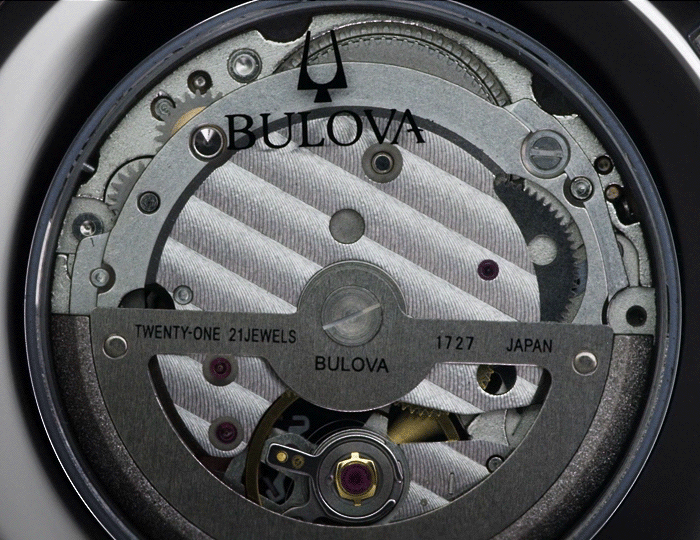
Production Process
Some of the finest watches in the market are those that are handcrafted, receiving unparalleled attention to detail through this process. This meticulous handcrafting is a distinguishing factor that sets luxury watch brands apart from their competitors.
In contrast, Bulova opts for large-scale production rather than handcrafting. The use of machines in the manufacturing process often results in less emphasis on the finer details. The difference between crafting a watch by hand and producing it through automated machinery is significant.
Furthermore, Bulova’s watches are not produced entirely in-house. For their more budget-friendly models, a significant number of components are manufactured in Hong Kong. Their mid-range series, on the other hand, is produced in Japan.
The components for Bulova’s higher-end watches are sourced from Switzerland. The assembly of Bulova watches typically takes place in the same countries where their components are produced. For example, the entire budget line is assembled in Hong Kong by the same manufacturer that produces its parts.
Why Do Bulova Watches Cost So Much?
The use of high-quality materials such as sapphire crystal and premium stainless steel contributes to the higher price point of many Bulova watches. However, it’s important to note that Bulova also offers a range of more affordable watches. The brand’s premium models are particularly notable for their fine craftsmanship. To better understand the pricing of Bulova watches, let’s explore the factors that influence the value of various models in their collection.
Style
Bulova watches are known for their distinctive style, blending classic elegance with modern design. This style quotient plays a significant role in their pricing.
Function
Bulova watches are not just about aesthetics; they offer functional features like water resistance, chronograph functionalities, and unique innovations like ultra-high frequency movements in their Precisionist line.
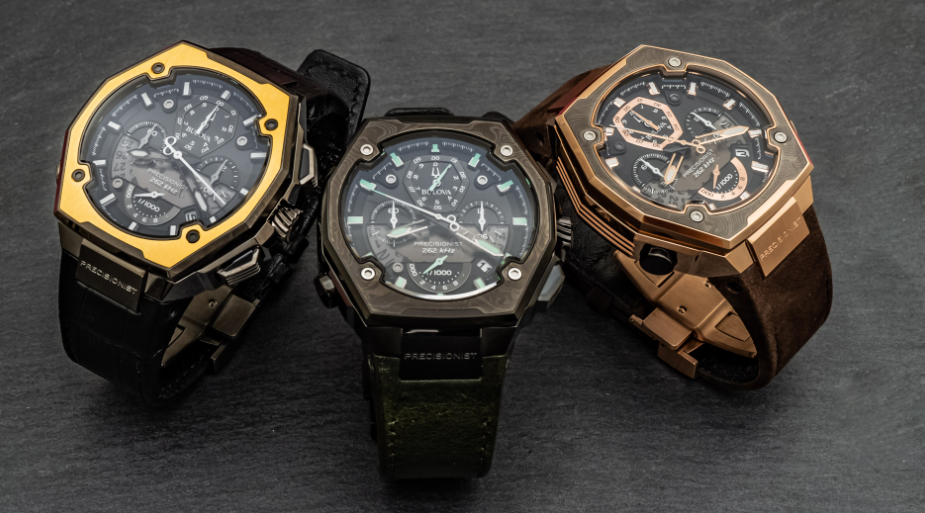
Bulova is renowned for its Precisionist movement, which strongly emphasizes accuracy. For example, Bulova watches typically exhibit a daily time variation of only 10 seconds. In comparison, Rolex watches, known for their precision, fluctuate daily from -4 to +6 seconds.
The Bulova automatic collection features watches that operate without the need for batteries. Since its establishment in 1875, Bulova has consistently evolved its technological capabilities. Whether opting for quartz or mechanical movement watches, you can rely on a Bulova timepiece for its dependability and accuracy.
Materials
Premium Bulova models, such as the Precisionist X, boast straps crafted from luxurious black alligator skin. Many Bulova watches also feature a domed sapphire crystal face, known for its anti-glare properties. Bulova skillfully utilizes materials that are both aesthetically pleasing and functional.
For example, the sapphire crystal used in their watch faces is renowned for its resistance to scratches and impacts, enhancing the watch’s durability. This emphasis on resilience could be a key reason behind Bulova’s choice to use stainless steel in their designs. Additionally, limited-edition Bulova watches often incorporate 18k gold, underscoring the brand’s commitment to high-quality craftsmanship and luxurious materials.
The materials used in Bulova watches, from durable metals to precious stones, contribute to their cost. These high-quality materials ensure longevity and resilience, key factors in the pricing of their timepieces.
Which is Better, Citizen or Bulova?
Comparing Citizen and Bulova isn’t straightforward, as each brand has its strengths. Citizen is renowned for its Eco-Drive technology and wide range of styles, while Bulova is known for its design innovation and history. The choice between the two often boils down to personal preference regarding style, technology, and brand heritage.
Since Citizen – a brand that has existed since 1857 – acquired Bulova in 2007, numerous comparisons between the two brands have emerged.
Ultimately, which brand is better depends on individual preferences. However, here are some observations:
- Bulova tends to excel in design, often offering more superior aesthetics in its watches.
- Citizen watches are known for their user-friendliness, particularly highlighted by their unique Eco-Drive movement.
- Warranty periods differ: Bulova watches typically come with a three-year warranty, whereas Citizen offers a longer five-year warranty.
- Generally, Bulova’s pricing is more competitive, offering lower price points than Citizen.
Is Genuine Gold Used by Bulova Accutron?
In certain models, Bulova Accutron does use genuine gold. This inclusion of precious metals is part of what gives some Bulova watches their luxury status and, by extension, their higher value and cost. A little-known fact is that this watch brand produced the world’s first 24-karat gold wristwatch.
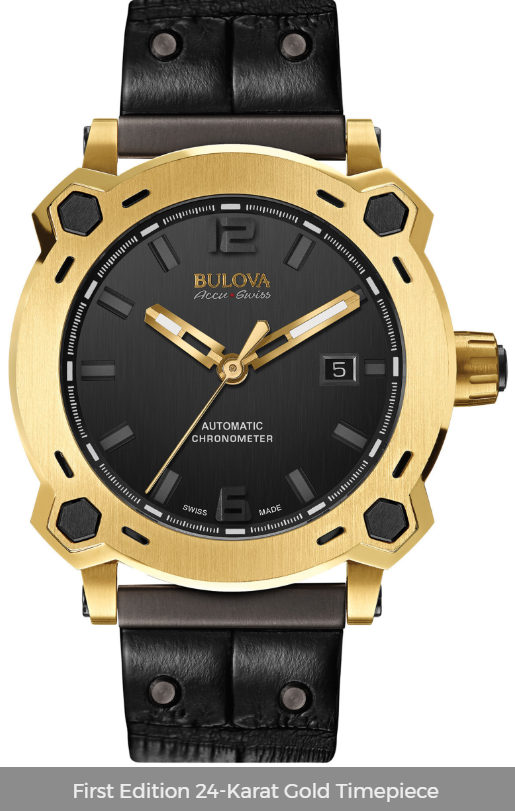
Conclusion
While Bulova watches may not traditionally be considered as a primary investment choice like some high-end luxury brands, they hold value in terms of their craftsmanship, design, and technological innovation. Their use of premium materials and commitment to quality manufacturing processes align them with luxury standards. While they might not always yield significant financial returns, Bulova watches are a worthwhile investment for those who appreciate the art of watchmaking and the brand’s rich history.
Whether Bulova is a better choice than Citizen or other brands depends on individual preferences and what one values in a watch. The use of genuine gold in specific models, such as the Bulova Accutron, adds to their appeal and value, making them a cherished possession for many watch enthusiasts.

